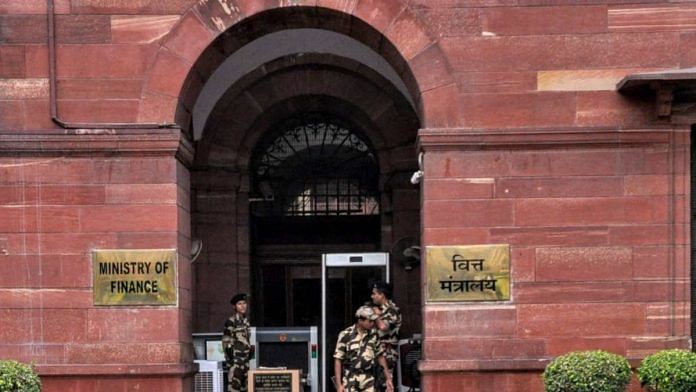New Delhi: Indian states are moving ahead on reforms proposed by the Narendra Modi government, such as seeding Aadhaar with ration cards, bringing in steps to facilitate ease of doing business and also urban local body reforms, to avail of the additional borrowing window offered by the Centre.
However, they have steered clear of power sector reforms that require them to take the “politically difficult” decision of introducing direct benefit transfer for provision of free electricity to farmers as well as focussing on reducing losses of state distribution companies.
According to a finance ministry statement Wednesday, Andhra Pradesh and Madhya Pradesh have so far completed three out of the four reforms proposed by the Modi government, which makes them eligible for the incentives offered by the latter.
The incentives include enhanced borrowing limits for the states as well as a special financial assistance from the central government to undertake capital expenditure announced under the Atmanirbhar package.
The additional borrowing option was given by the central government to the cash-strapped states, who were battling the pandemic and were faced with a huge resource crunch due to contracting tax and other revenues.
The Modi government had last year proposed that the states could borrow over and above the 3 per cent of their gross state domestic product subject to meeting certain reform criteria.
Termed as ‘citizen-centric’ reforms, the states could borrow an additional 0.25 percentage points each for meeting every reform criteria.
According to finance ministry data, seen by ThePrint, ten states have implemented the ‘One Nation One Ration card’ system, while seven states have initiated ease of doing business reforms and two states have initiated local body reforms.
However, no state has implemented the power sector reforms.
With states meeting some of the reforms criteria, they have been given permission by the Centre to borrow an additional Rs 51,682 crore.
Also read: Modi govt’s conditional offer to states on borrowing and the controversy around it
Reforms proposed by Modi govt
The government had asked states to complete seeding of Aadhaar with every ration card to ensure a successful rollout of the ‘One Nation One Ration Card’ scheme. The government now aims to complete this process by March 2021 as against the earlier deadline of June 2020.
It has also asked states to install an electronic point-of-sale (POS) machine at every ration shop to enable the use of electronic ration cards.
As part of the ease of doing business initiative, states were required to assess the district level business reform action plan, eliminating the need for renewal of registration certificates and licences obtained by businesses under various Acts, and implementation of a computerised central random inspection system with provisions like central allocation of inspectors and frequent rotations to prevent rent-seeking.
As part of reforms for the urban local body to increase their revenues, states have been asked to ensure a review of the floor rates of property taxes and make them in consonance with urban property prices to ensure an increase in revenues for municipalities. They were also asked to ensure that municipalities review the floor rates for user charges for water and sewage.
Under power distribution reforms, states were asked to introduce direct benefit transfer for farmers, who currently receive free electricity. The Centre wants farmers to first pay for the electricity they consume, which will be later reimbursed by the state through a direct cash transfer into farmers’ bank accounts to make the farmers more conscious of their power usage.
Free power to farmers being a politically sensitive issue, most states have steered clear of this reform.
The states have also been asked to ensure that the state-owned power distribution companies reduce their aggregate technical and commercial losses, and do away with the gap between the cost of supply of power and revenue realised.
Experts said the “political fallout” of some of these reforms may be difficult to manage for the states.
‘Politically as well as financially difficult’
N.R. Bhanumurthy, Vice-Chancellor at Bengaluru’s Dr B.R. Ambedkar School of Economics University, said power sector reforms are politically as well as financially difficult to undertake.
“There are pending dues that span several years. The Uday scheme has also not helped in a big way. The political fallout of some of these reforms may be difficult to manage for the states. In the instance of local body reforms, states that are heading for local body elections may also not opt for these reforms,” he said.
The Uday scheme was the Modi government’s ambitious programme to reduce the losses incurred by state-owned distribution firms and make them financially viable. However, it has achieved only limited success with many state distribution companies continuing to register losses even after five years of the launch of the scheme.
Also read: Conditions on extra borrowing will help states’ medium-term growth: Finance panel chief



